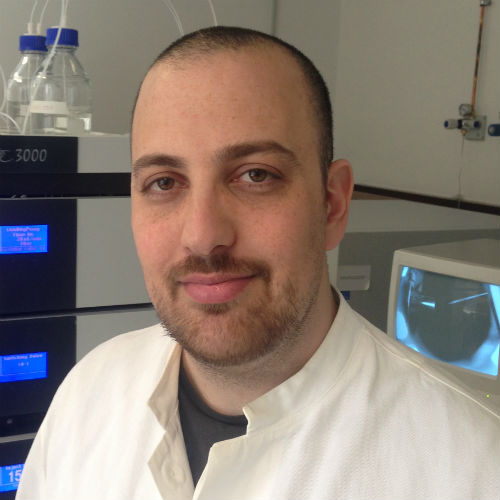Severity: Warning
Message: session_start(): Failed to initialize storage module: user (path: /var/www/session)
Filename: Session/Session.php
Line Number: 143
 Dr. Shahaf Peleg
Dr. Shahaf Peleg
Dr. Shahaf Peleg is a researcher at the Ludwig-Maximilians University in Munich, Germany. He has a strong interest in genetic changes that affect our memory and how our brain functions as we age. Dr Peleg was part of the recent EPITHERAPY project that came up with promising findings and moved us closer to developing memory-boosting drugs. His work discovered a change on a protein that was linked to cognitive decline in ageing mice. Restoring this protein was found to turn learning-induced genes back on and to lead to the recovery of thinking abilities in mice.
Can you sum up what this EPITHERAPY project was all about?
You have a lot of genetic information in DNA and it needs to be orchestrated, just like a big city needs a government to coordinate what happens and when. In epigenetics there are a couple of key players that control which genes are expressed and which genes are not expressed. We found potential drugs that target these key players and this is what epitherapy is all about: Finding the key players and learning how to target them with drugs to help patients.
How did you first become interested in ageing?
Ageing has always fascinated me because it is complicated and it happens to every organism. Also for me it is a personal thing too. I enjoy living and I would like to think I could live a good and healthy life without losing all of the things that I have learnt and my experiences in life. In my research I hope to prevent this loss.
What important findings came from EPITHERAPY research?
I had a paper in Science that showed that a specific epigenetic modification is partly responsible for causing decline. We also showed that restoring this specific marker was enough to enhance the cognitive ability in middle-aged mice. It would be interesting to one day test this on people and try to see if it helps. These epigenetic markers are extremely conserved in evolution.
Your focus is on the ageing brain of people, yet you currently study flies and mice in your lab?
My interest is how epigenetic changes affect the brain as we age. Mice live 3 to 4 years and you need to wait until they reach 16 months before they show cognitive impairment and you can test drugs on them. Flies though live just 60 to 70 days and they also experience cognitive decline as they age. Tests show that flies younger than 2 weeks are better at remembering odours than older flies. My hunch is that epigenetics is so well conserved that if you find a treatment in flies it might also work in humans.
What one big question would you like brain research to answer?
I would like to see if we could prevent neurodegeneration and treat it at an early age. It is typical with human nature that we always wait until there is a problem and then try to solve it. My question is what if we can see the problem approaching and try to keep cells healthy. So I want to target what happens as we age, but before we really notice it. This means treating ageing even in our early 30s. The small changes in the beginning I think will prove to be the most important.
Do you look forward to the day when your research leads to a drug for the ageing brain?
My highest motivation is not to win a Nobel Prize or publish in the top journals. I really want to find some class of drug or some pathways that will allow us live healthier lives and not develop diseases such as Alzheimer’s. I really look forward to that day when we can treat brain disease and prevent them. That is what motivates me and makes my work every day easy.
Share this page: